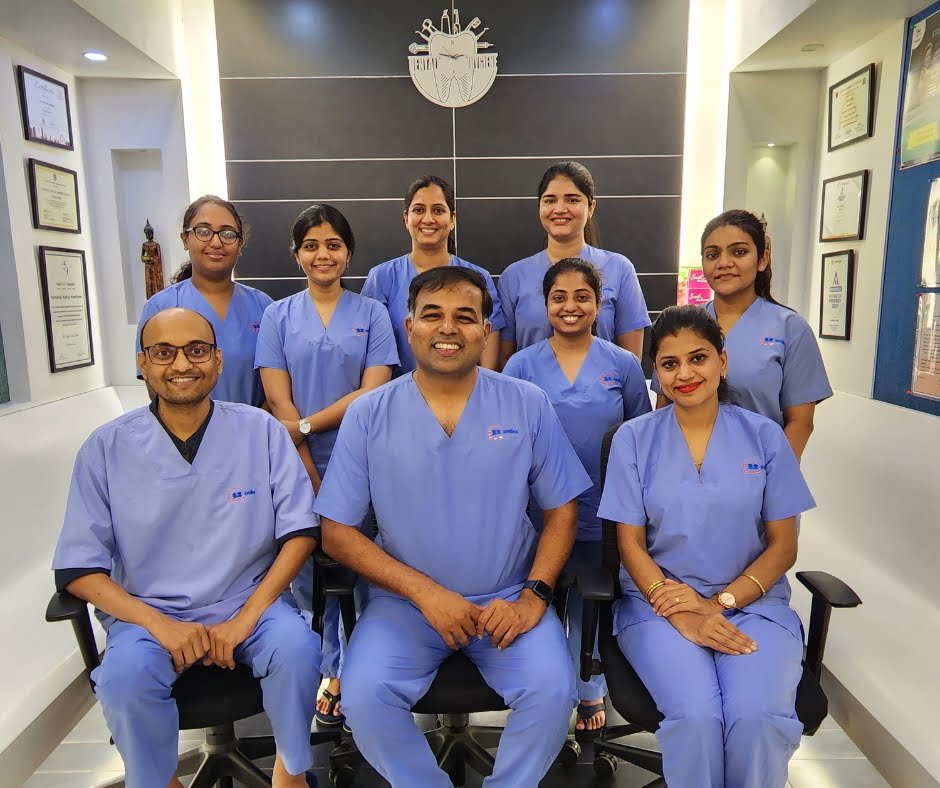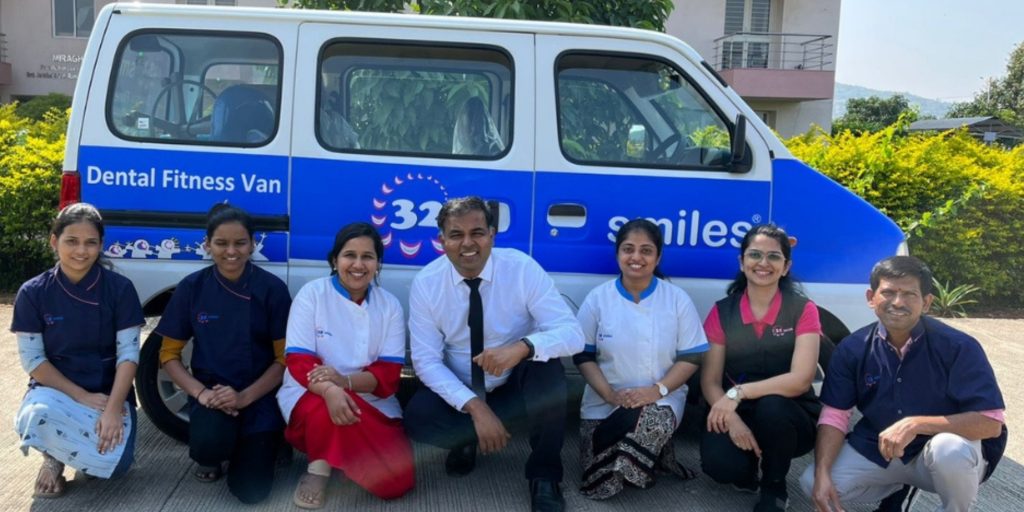Good oral hygiene begins before the first tooth appears
Your child’s primary (milk) and permanent teeth are important for chewing, speaking, and appearance. In addition, the primary teeth maintain space for the permanent teeth to come into the mouth. Since a healthy mouth contributes greatly to your child’s self-esteem, good oral health practices should begin in infancy and continue throughout life. Parents are the most important role models a child can have for learning good oral health habits. Your child can enjoy a lifetime of beautiful smiles if you follow the simple steps below.
INFANCY (0 – ONE)


Good oral health practices should begin when your child is an infant. As parents, we need to realize that a baby’s teeth are at risk for decay as soon as they appear in the mouth.
- Teething may make your baby’s gums sore and tender. If fever is present, consult your pediatrician.
- Milk tooth appears around six months of age till three years of age.
- Sucking is a natural reflex for babies however prolonged use of pacifiers and finger sucking can affect development of your child’s teeth.
- Breast feeding should be done till about 9 months. Wean your child from the bottle by the about 16 months. Clean the teeth with damp cloth or with a toothbrush after feeding the baby, failure in doing so leads to a serious problem known as BOTTLE TOOTH DECAY.
- Once the first tooth erupts, begin using a small, soft-bristle toothbrush to clean your child’s teeth. Toothpaste is not recommended for cleaning an infant’s teeth.
1 to 5 years



The preschool years are an important time to help your child establish good oral health habits. Since children at this age are unable to clean their own mouths effectively, parents need to provide this care for them.
- Be a good role model; allow your child to watch you brush and floss your teeth.
- Brush your child’s teeth two times daily after the first tooth appears.
- Use a child-size, soft-bristle toothbrush.
- Use a pea-size amount (or less) of fluoride toothpaste once your child is able to spit.
- Help your child choose sensible snacks that do not promote tooth decay.
- Avoid using sugary snacks and chocolates as a reward.
- Pacifiers and Thumb sucking, if prolonged, can affect development of teeth. Usually children stop between the ages of 2 to 4 years of age. If you are unsuccessful in breaking the habit, consult your dentist.
- Yearly dental visits should begin by their first birthday.
6 years to 14 years


Parents continue to be an influential role model for children; therefore, it is important for parents also to practice good oral health habits.
- Permanent teeth start appearing by the age of six and continue till 12 years.
- Brushing should be done twice daily.
- Children can use fluoride mouth rinse and should be able to floss daily, with supervision, by eight years of age.
- Use a pea-size amount (or less) of fluoride toothpaste.
- Diet should include more milk products and nutritious food with less sugary food and chocolates, which can cause tooth decay.
- Increase water intake and rinse after every meal is very essential
- Apart from the fluoride toothpaste child with high caries tendency, also needs regular fluoride Gel treatment in at regular intervals to be done by the dentist.
- Dental sealants are used to protect the chewing surfaces of the back teeth which can be applied to prevent decay.
- Premature loss of milk tooth may result in crooked teeth or misalignment (improper bite) which can be corrected by space maintainers.
- 10 to 13 year is called as golden growing age. Treatment for bad bite and crooked teeth is very favorable and stable during this age.
Dental fitness guidelines

- Brush twice a day at least three minutes
- Include a lot of calcium and fiber in your daily diet
- Drink lots of water
- Rinse mouth after eating
- Avoid chocolates and sugary products
- Regular dental visits play an essential role in maintaining good oral health.
Popular Searches
Best Dentists Pune | Best Orthodontists Pune | Best Invisalign Clinic Pune | Best Root Canal Pune | Best Braces Clinic Pune








